The basics of a good low income budget plan is to ensure that your expenses are less than your income. The making of a budget should list what are your needs and what are your wants. Obviously the needs are the first thing you should cover and then add in wants in the order of the importance that you place on them.
In our consumer society we seem to have forgotten what is actually essential to survive and what is just what we want. Everywhere there is advertising encouraging you to buy, the media perpetuating what you must have to survive, when in reality there is only a handful of things that are essential to life. It may feel that you are missing out but if you live beyond your means you cause many more headaches for yourself. Budgeting money on a low income is so much harder as seems to be always more expenses than income but it can be done.

Image courtesy of Stuart Miles/freedigitalimages.net
In discussing needs versus wants my personal belief is the list should be broken down into three categories: essentials – these are the ones that you need to sustain life; needs – these are good to have but in reality you can live without them; and finally wants – these are the non-essentials, the things you would like. So my belief is the lists should look like this in this order and my rationale for this:
Essentials
- Housing – rent, mortgage: my personal belief is that this is your first priority no ifs, buts, or maybes. After all there is no point being on top of your electricity or water bills if you lose the roof over your head because then you’ll have no need for an electricity bill! I know housing is expensive these days and just seems to be going up but if you are really struggling to pay your accommodation costs look around and see if you can find something cheaper.

Image courtesy of Serge Bertasius Photography/freedigitalphotos.net
This is especially true if your housing costs are more than 30% of your income. Do you really need a four-bedroom house? Many people get themselves into debt purchasing a property to keep up with the Joneses and the rise of the McMansion over the past decade has contributed to this. How many of us growing up lived in such huge houses? I know all of the homes I lived in as a kid were three bedroom homes and was the same for most of my friends, even those with four siblings! Obviously it is much easier to move home if you are renting than if you have a mortgage but if you are overextended and more than 30% of your income goes in housing costs then you really need to reevaluate if you are in the right place.
- Insurance: this is non-negotiable. If you have a mortgage or own your home then you MUST have insurance for both the house and the contents. If you rent you MUST have insurance for your contents. How often do we hear the stories in the media where somebody’s home has burned down and they had no insurance and were left with nothing but crippling debt? You need insurance to ensure you can get yourself back up again in the event of a catastrophe.
-
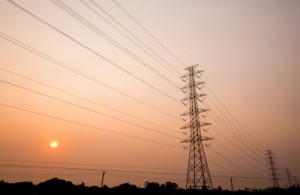
Image courtesy of moggara12/freedigitalphotos.com
Electricity (Gas if you have this): it is important to have your electricity/gas paid up and not risk being cut off. You need it for everything these days – cooking, washing etc. Yes you could cook over a fire in the backyard or eat cold baked beans out of a can or wash your clothes by hand but really, do you want to? Also living by candlelight might sound romantic but it risks burning your home down hence the need for insurance.
-
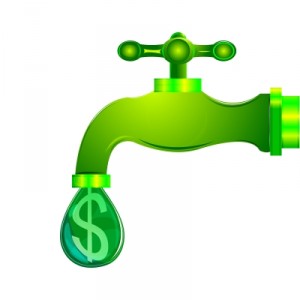
Image courtesy of digitalart/freedigitalphotos.net
Water: again this is an essential of life. You need it to live, literally, without water you.will.die! You need it to cook, you need it to clean, you need it to bath. You just need it, so again pay your bill! Remember being cut off costs you more in the long run when you are charged fees for reconnection.
- Food: yes it is only at number 5 and yes, it is important but without shelter or water you have more pressing issues than not being able to eat. You can go for days without eating but if you have no shelter or water then you are in big trouble of exposure to the elements and dehydration and death.
-
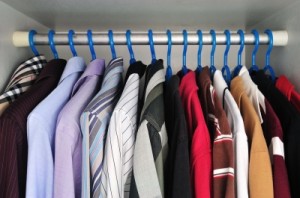
Image courtesy of mrpuen/freedigitalphotos.net
Clothing: having clothing is essential but do we really need a wardrobe with 50 different changes of clothes and 30 pairs of shoes? No, we don’t. Really a good range of mix and match shirts, shorts, jeans, skirts, work outfits/uniforms etc, something nice to go out in. What’s wrong with mix and matching? What’s the need to have a new outfit every time you go out somewhere special? Why do you need a different outfit for every day of the month? Why are people so worried about going to an event in the same outfit they’ve worn previously? How many of your outfits are in your wardrobe that you’ve worn once or haven’t worn for years? So, yes clothing is essential but only the basics, anything after that becomes a WANT.
-

Image courtesy of phasinphoto/freedigitalphotos.net
Medical expenses: we are very fortunate in Australia to have a universal, publicly funded health system in the form of Medicare. If you have ongoing medical problems it is imperative that you keep up with the treatment plan and medicines prescribed by your doctor. If you are on a concession card you outlay for medication is quite low in comparison to the actual costs of the medicine. Hunt around, you can still find bulk billing doctors although if Tony Abbott has his way and his 2014 Budget goes through you will be hit with a co-payment. But for now, there are bulk billing doctors around. If you want added security you can get Private Health Insurance but really the rate at which the price of this is rising it is fast becoming a want. I have both hospital and top extras for my private health and I use it a lot for glasses, dentist, speech therapy, psychology, and other allied health. You can get most of these things through the public system with a concession card but the waiting times through the public system can be very long. I would rather pay a gap and get them as soon as we need them but as I said it is becoming so expensive that it may soon become a luxury item.
- Savings: I can hear you all saying to me – I barely have enough to get by now, how do you expect me to save as well? Savings are essential and I can assure you that saving money on a low income can be done. You need to have money set aside so if something goes wrong you have something to use. A little bit each week eventually adds up. We currently have three jars that coins get dropped into: a 5c/10c jar, a 20c jar, a 50c jar that gold coins also get added to if they are left over. We even had one of those big money tins you can pick up at the cheap shop for a few dollars that you have use a tin

Image courtesy of AKARAKINGDOMS/freedigitalphotos.net
opener to open. We put spare money in the tin – the rules was minimum coin was 50c and if I had leftover money from fuel or food etc it went in there so when we cracked it open there were even $20 and $50 notes in there! Using this tin we managed to save, over the past seven years, enough money to take a holiday to Tasmania which we are going on later this year! So I want you to seriously consider setting aside at least $10 per fortnight into a separate bank account, I use ING, for unexpected expenses. By unexpected I do NOT mean that cute pair of shoes that are on special, or that sweet outfit for your baby, or your car requires its regular service, I mean unexpected. Unexpected means an emergency such as your fridge blows up, or you have to go interstate urgently because your mum has had an accident. This tip works for mortgage holders; another way I use to save extra money is through my mortgage (you need to have a redraw facility for this to work): I put extra money in each fortnight and then if something unexpected happens I apply to redraw some money. This is good in two ways: 1. you have savings that are accessible, although dependent on your banks policy it can take a couple of days to access; and 2. you save on interest that you pay in the longterm of the loan. This system is also good if you have something you really want to purchase as you can save into your mortgage and redraw when you have the funds. I’ve even found that sometimes I’ve not wanted the item I’ve saved for when I get to the crunch – the bonus is MORE savings!
Needs
- Pay down debt: you will really never get ahead while you have debt hanging over your head. I’m not talking about your mortgage here, after all a home is a great asset to have even with debt attached to it. I’d only be concerned if you had a mortgage that is over 30% of your income because you are always going to struggle if that’s the case and maybe you need to consider other options such as downsizing. The debt I’m particularly talking about here is your credit cards, you know the little plastic cards in your wallet you swipe at the shop and you can buy things with? Well guess what? It’s not your money. You have to pay it back, usually at an exorbitantly high interest rate. The MUCH better option is a Visa debit card. Most banks offer these nowadays. The great thing about a Visa debit card is it can be used like a credit card BUT it’s your money you are using, you are not paying interest on it. I will admit that I had a credit card three years ago. It was a GE Card and I used it solely to purchase big ticket items on interest free that I ALWAYS had paid off by the end of the interest free period. It NEVER left the house until I needed it for another interest free purchase that I knew I
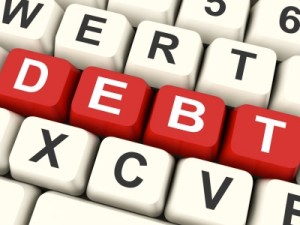
Image courtesy of Stuart Miles/freedigitalphotos.net
could pay off. If you can be disciplined with these types of cards then go for it but if you know that you will fall into the trap of using it all the time CUT IT UP. I no longer have that credit card, only a Visa debit card and I put money away into my mortgage to withdraw for big ticket items as required – that way I pay less interest on my mortgage and I have the money available to withdraw when I need a new fridge, washing machine etc. I love the freedom I feel not having a credit card. If you, however still have one CUT IT UP and pay it off as quickly as possible. I have known people who have had several credit cards who have used Card A to pay Card B which is used to pay Card C in order to keep ahead and just digging in deeper and deeper. A good way to go about paying down your credit card debt is to do a balance transfer to a card that offers 0% interest for a set period of time on the balance transfer. Hunt around because sometimes you can get interest free for 14 months! This means you can pay down your debt without more interest being added on top. This only works as a debt reduction strategy if you don’t then continue to use the card but instead CUT IT UP immediately and use it simply as a means to reducing your debt.
- Transport: whether this is in the form of a car or public transport or a combination of the two, this is something you need to factor into your budget. If you own a car you need to factor in fuel, registration, insurance, and maintenance. Cars are money pits, face it, but the reality is if you live in the outer suburbs or rurally you need them to get

Image courtesy of watcharakun/freedigitalphotos.net
anywhere. Comprehensive insurance is a definite when you own a car as it means if you cause an accident that your insurance company will pay, not only for the damage to your car, but for the damage to anything you hit. Try, as much as possible, to only take your car when necessary and to combine trips when you do go out to reduce the running costs.
- Telephone: and by this I don’t mean the latest mobile with all the latest functions, I mean a home phone or a basic mobile phone that you can use to make calls or be contacted on. Try as much as possible not to get yourself into a 2 year contract for a new state of the art phone when your mobile is still functional. Try to keep your mobile phone on prepaid as you will always know what your cost is and you can’t go over your spend and run up huge unexpected bills like can occur with postpaid. I personally have a home phone as well as my mobile but that’s a personal choice. A lot of my friends just have mobiles these days but due to numerous medical conditions, one life threatening I like the idea of having a home line on a different provider in case there is an issue with my mobile. Also when I’m at work my kids can call from the home phone.

Image courtesy of phanlop88/freedigitalphotos.net
- Internet: Yes you can go without internet but if you have school-aged children, are studying, or are looking for work then these days internet is a necessity. Yes you can access the internet at your local library but it is usually restricted to an hour at a time. Yes you can access it at work but your boss may get a bit peeved if you are using it to study or look for another job and not for doing what he is paying you for! Internet cafes appear to be becoming a dying breed these days and they can be quite expensive especially when you factor in the coffee and the carrot cake you just have to have. I personally find having the internet on at home saves me money. I use it to interact with Government departments rather than phoning them and waiting on hold for ever with that dreadful hold music, or driving and waiting in a queue there. I also use it a lot to compare products or to do research into something I’m considering purchasing. Sometimes just researching is enough to put me off a product. I also purchase quite frequently online. I find online I am more likely to just get the item I’m searching for, whereas if I’d headed to the shopping centre I would have walked past numerous other stores and been tempted to purchase items I really don’t need. Also if you know you are really bad at impulse buying when grocery shopping until you get yourself into a mindset of only buying what you need it is probably much safer to purchase through Coles or Woolworths online as you can see what your basket is costing you in real time and not making rash purchases as you go past something that catches your eye. Fortunately these days you don’t need to have a home phone to have internet and so if you are looking to reduce costs consider getting Naked DSL as you get ADSL speeds without the cost of a home phone line.
- Education Expenses: education opens up so many doors. It is so important for your kids to receive an education, however, even the “free” education in Australia can cost hundreds if not thousands with uniforms, books, computers, excursions, fees etc. I’m
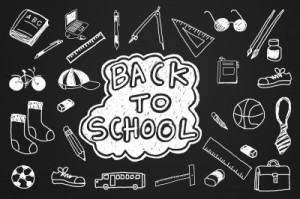
Image courtesy of samarttiw/freedigitalphotos.net
lucky, my daughters public high school allows you to Centrepay the fees, which includes textbook hire, a laptop, and some basic excursions. You can also Centrepay uniforms with a 20% deposit paid up front. This help spreads the load. I have an ING account specifically set up for Education Expenses and I put a bit in every fortnight so that when my kids require something for school I have the money there. I also put the Schoolkids Bonus money into it when that comes in bi-annually. The Abbott Government is trying to remove the Schoolkids Bonus but it has failed to pass twice now so for the time being at least it still exists. This education account always means I have money to pay for things such as shoes, jumpers, books, excursions etc.
-
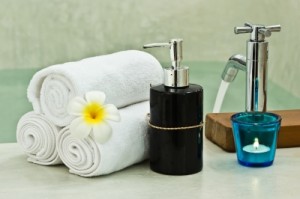
Image courtesy of winnond/freedigitalphotos.net
Personal Hygiene: this is a must if you wish to be acceptable in public. Nobody wants to be next to the person with excessive BO on the train who clearly hasn’t washed for a week. So make sure your budget includes soap, shampoo, and toothpaste. These don’t need to be the expensive variety. You can get some decent products from places such as Aldi for a very reasonable price. Also put money aside for a basic hair cut but by basic I do not mean colour, hair extensions, or any other add ons that can easily see a hair appointment requiring you to take a personal loan. Anything other than a basic hair cut is a WANT.
- Gifts: the reality is we all have birthdays, we celebrate Christmas and anniversaries. It’s always nice to have a gift, even a small one, to give to a loved one on a special occasion. I put a bit away each fortnight into another ING account for this specific purpose. It means when my kids are invited to a classmates party we always have some money to buy a small gift. I also set a limit on what can be spent dependant on the person, for example a classmates party will be a maximum of $20. I also like to purchase Christmas presents throughout the year as I see something appropriate for someone which spreads the load especially if you can pick it up on sale.

Image courtesy of Stuart Miles/freedigitalphotos.net
Well, for me at least, herein lies the end of the ESSENTIALS and the NEEDS. Now everything else is a WANT. In the wants you would include these things:
- Hair – perms, colours, extensions, streaks
- Nails
- Extracurricular sports and activities
- Pocket money/play money
- Gym
- Foxtel
- Movies
- Renting DVDs
- Clothing – anything more than basic items
- Pets
- Theme Parks
- Zoos
- Holidays

A lot of great tips here on budgeting. I saw in the news that over 4 Billion was being wasted due to inefficient clothes dryers. Did you see this story? Cleaning linttraps were one of the biggest tips given on that news piece.
Thanks Bo. It wouldn’t surprise me with the dryers. We tend to use them as a convenience tool and forget the impact they are having on the household budget. I’m always making sure my lint filter is cleaned and would recommend others to do this regularly too.
Thanks for finally talking about > Needs versus Wants – Tamed Dollar < Loved it!